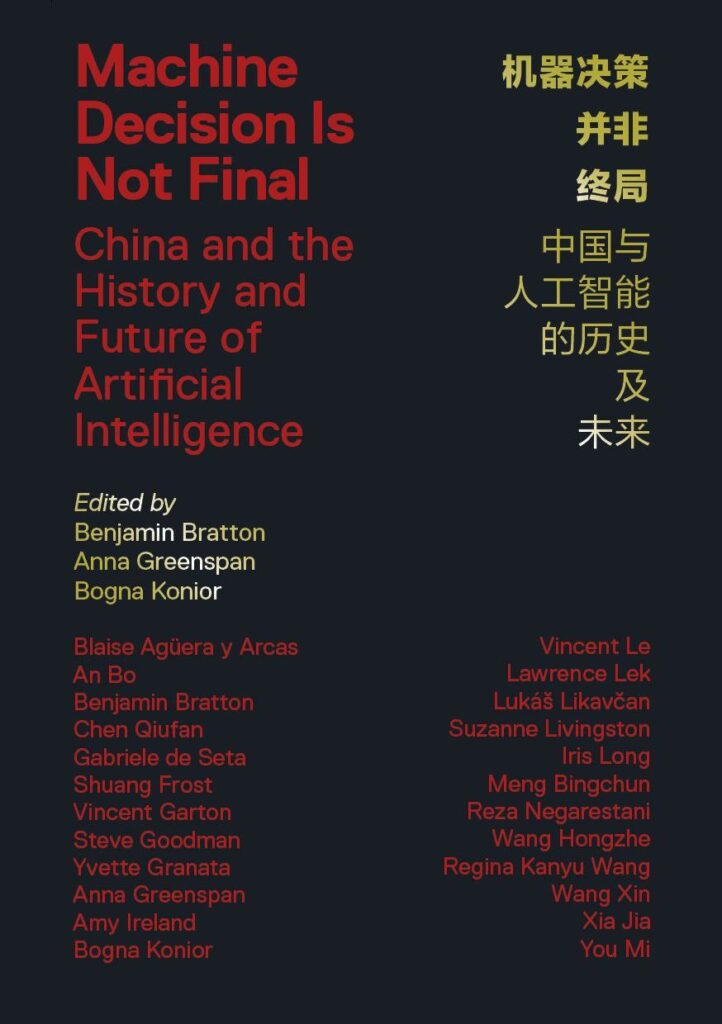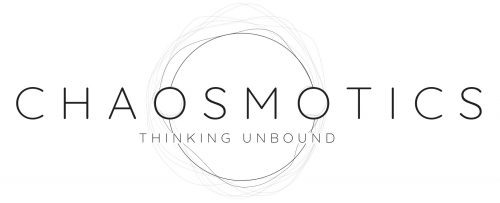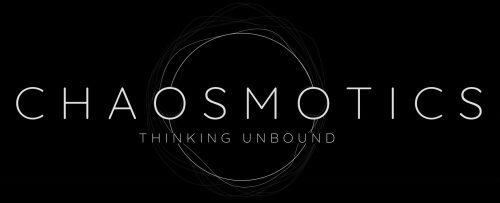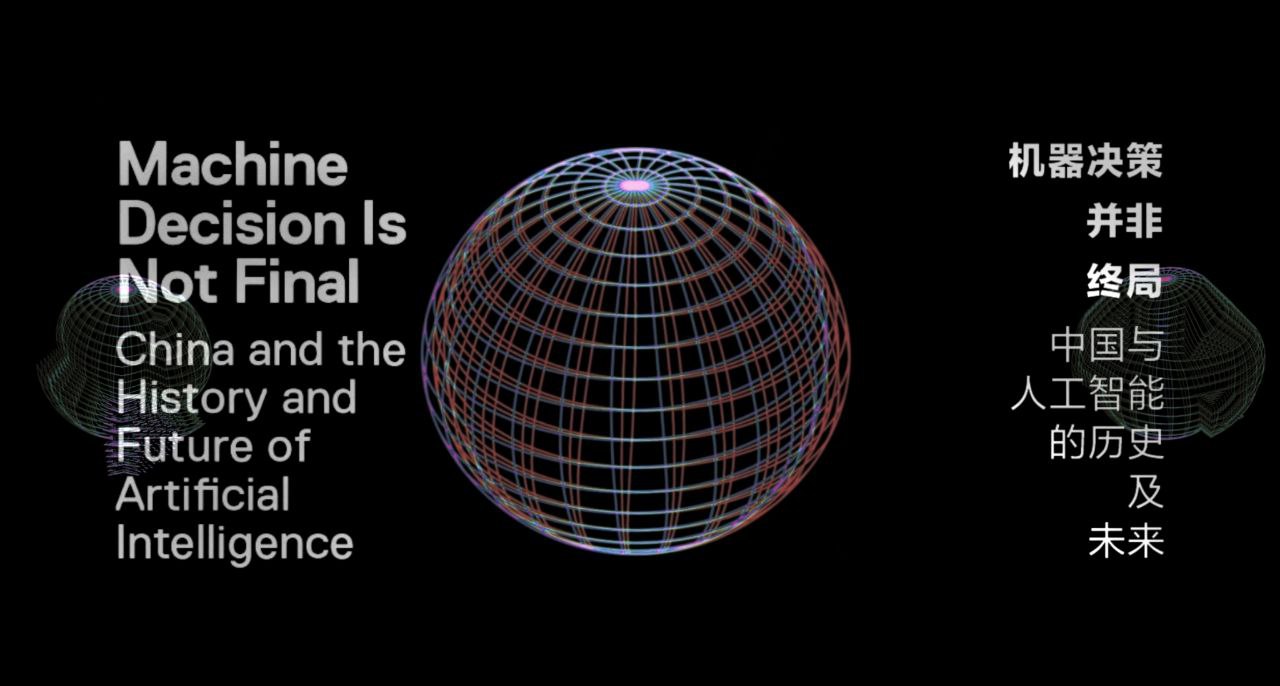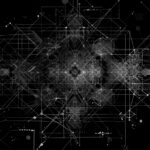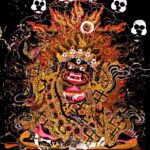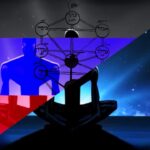“Spanning borders between different worlds, histories, futures, and foundational models, Machine Decision is Not Final is not only a timely reappraisal of the stakes of AI development, but a tool for constructing more global imaginaries for the future of AI.” This Fall, Urbanomic will release Machine Decision is Not Final, an interdisciplinary and cross-cultural collection edited by Benjamin Bratton, Anna Greenspan and Bogna Konior. Seeking a fresh perspective on what artificial intelligence is today and what it might become, Chaosmotics, in collaboration with Urbanomic, is publishing a series of preview excerpts throughout the week.
_____________________
Automaticity and the Mystery of State
Vincent Garton
Artificial intelligence is the origin and limit of the genealogy of the state. The concepts of machine and state in their familiar form emerged simultaneously in European thought at the turn of the medieval and modern eras, reflecting in each case the ascendant concept of a universe governed by the interaction of mechanical forces. They attained a seminal joint articulation in Thomas Hobbes—at once the definitive theorist of the modern state and the reformulator of reason as calculation. It was his Leviathan,in 1651, that brought to bear a novel materialist theory of the cosmos to provide the first account of the state as a truly independent entity, an artificial person with its own particular machinery and a single will distinct from that of any of its members and its sovereign. […] Artificial man and mortal god: in a rehearsal of future science fiction, Hobbes’s state by its very definition is also an AI that dominates its creators.
[In the West] the [concept of the] state begins as a form of simulated artificial intelligence, dependent on a theologising conception of sovereignty, which serves as the mystery that continually sustains this simulation. The contemporary prospect of AI as a truly automatic machine system capable of self-sufficient reason transforms the simulation into actuality, but in doing so it abolishes the possibility of human sovereignty that is necessary to the functioning of the modern state. This prospective despotism of the algorithm demands a fundamental reassessment of the conceptual inventory of political thought that moves beyond the inherited [Western] concept of the state and its particular political theology. One alternative, I suggest, may be found by undertaking a great historical leap—to the theoretical framework of the 3rd century BC Han Feizi, an enduring classic of Chinese political thought.
[T]he ancient tradition of political thought in China lacks a concept of the state. Even in modern Mandarin Chinese, the words that customarily translate the term and designate its contemporary realisation are an uncomfortable fit. Guojia (国家), the most typical translation, is a nineteenth century repurposing, and its present usage bears the intellectual characteristics of that age, collapsing state into ‘nation’ and ‘country’ […]. Aside from its radically divergent philosophical presuppositions, Chinese political thought has in any case until very recently lacked a parallel to the fundamental concept of artificial personality that lies genealogically at the heart of the concept of the state, which in the West allowed the construction of that entity as a simulated artificial intelligence. [1]
In interpreting the political theories collected within the Han Feizi [2] this has a radical consequence: they cannot, in any relevant sense, be said to have been oriented around ‘the state’. […] It is true that, abstracted from its context, the theoretical system of the Han Feizi can appear quite similar to that of Hobbes. Both articulated a vision of politics that broke decisively with previous moral concepts, resting upon an apparently materialistic conception of the world and taking as their political reality a world of relentless ambitions that must be restrained by force. Yet for all that, their thought remains grounded in radically different cosmologies, embodied in divergent articulations of the structure of political power. The incorporation within the Han Feizi of two commentaries on the classic attributed to Laozi, the Daodejing, demonstrates its central place.Mystery, to be sure, remains the ultimate basis: the Way is ‘what is eternal’, which ‘has neither a changing location nor a definite principle, and is not inherent in an eternal place. … The sage observes its mysterious emptiness [玄虚] and makes use of its comprehensive course.’ [3] But this is not the involuted trace of a separate sovereign God, hidden behind the world-machine: the mystery is the cosmos itself. […] The ruler function is not the mysterious sovereign of the Western state, the wielder of ineliminable excess whose responsibility it is to simulate the state as artificial intelligence. Rather, its objective in the Han Feizi is to abolish itself wholly transparently through the operation of the law that it sets in motion, becoming identified with the mystery of the Way itself. […] [T]he objective of the Han Feizi was not simply to inflate the power of a particular individual: it was precisely for the political community to ‘spontaneously do what is needed’ through the far-reaching identification of power, instantiated in the legal operation of reward and punishment, with the cosmic flux of the Way.[4] Automaticity, then, is in fact the ultimate goal, actualised through the continual application of the law as a definite program.
Zhang Yan’s recent consideration of the ‘concept of law in the age of artificial intelligence’ leads us further. Arguing on his own grounds that the advent of AI marks the end of the nation-state (民族国家) as the organising principle of politics, Zhang Yan opposes law and AI as principles of stability and experimentality, and notes that ‘the relationship between law and the state (国家) is bound to be revised’, since in the age of AI the law may be re-grounded in a power that escapes containment within the state. [5] As the antithesis between the physical world and its ‘mirror’ world of virtuality is constituted ever more sharply through AI, law becomes a system of coercion of the virtual itself. The Han Feizi suggests that we may go beyond even this, identifying the law itself with AI. If Zhang Yan is right that the purpose of the law in the age of AI is the coercion of the virtual world, conceived as AI in itself, the law may become a system for the generation of worlds. There is, in this case, no center point of sovereignty—no mystery of state—merely a program of flux in which sovereignty itself is rendered irrelevant.
[1] Fang Liufang (方流芳), ‘“Faren” jinru dangdai Zhongguo falü, yiyi hezai?’ ‘法人’进入当代中国法律,意义何在?, Zhongguo falü pinglun 中国法律评论, No. 6 (December 2019), 154–62.
[2] I prescind here from examining the composition of the Han Feizi in more detail. For a general account of the problem, Bertil Lundahl, Han Fei Zi: The Man and the Work (Stockholm: Institute of Oriental Languages, 1992). As Peter Moody notes, different parts of the Han Feizi make contradictory political assertions: Peter R. Moody, ‘Han Fei in His Context: Legalism on the Eve of the Qin Conquest’, Journal of Chinese Philosophy, 38, No. 1 (March 2011), 14. Nevertheless, they proceed from a more or less coherent set of theoretical assumptions.
[3] Han Feizi, ed. Gao et al., 59.
[4] Zhang Yan (张龑), ‘Rengong zhineng shidai de fa gainian’ 人工智能时代的法概念, Aisixiang 爱思想, May 26, 2019, http://www.aisixiang.com/data/116472.html.
